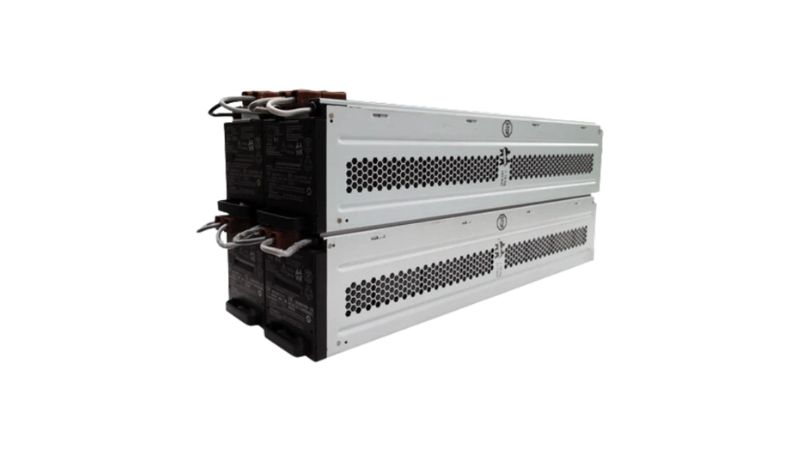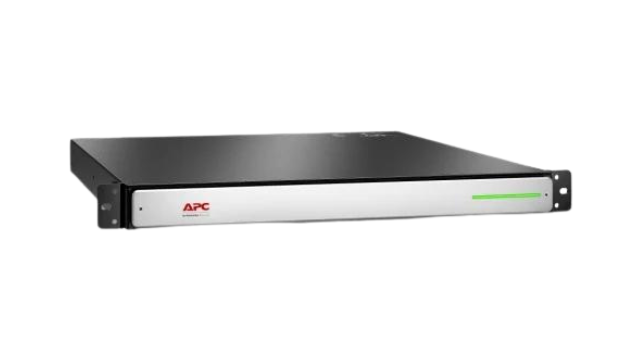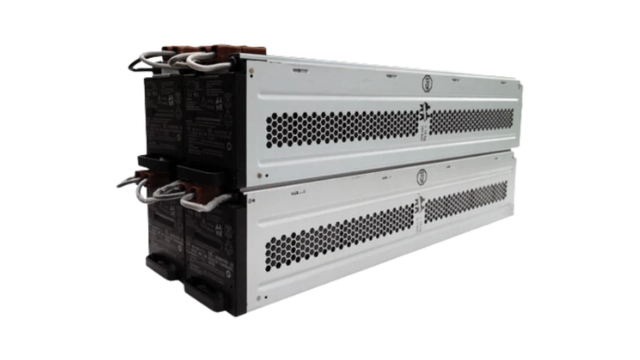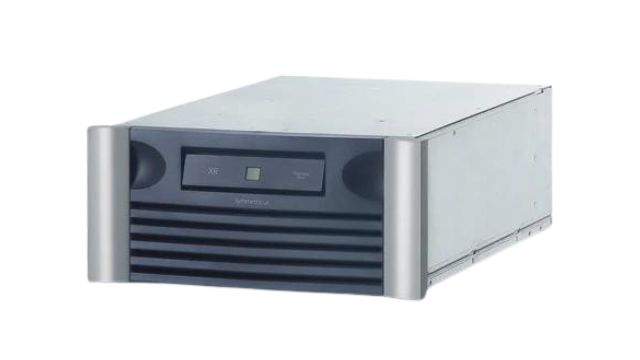
Contact the team
Ensure Your Mission-Critical
Operations Stay Up 24/7
Experience our top-tier power and cooling solutions designed specifically for ANZ & the Pacific Region.
Empower Your UPS

Why UPS Solutions?
-
Expertise You Can Trust
With years in the industry, our team has in-depth knowledge of UPS systems and batteries. Rely on us for informed guidance tailored to your needs.
-
Fast & Secure Shipping
Never wait long for essential power solutions. We expedite shipping processes, ensuring timely and safe delivery right to your doorstep.
-

Genuine Product Warranty
Shop with confidence knowing that our products are backed by genuine warranties, safeguarding your investment for years to come.
-
Expert Customer Support
Our commitment doesn’t end at purchase. Experience exceptional after-sales service, ready to assist with inquiries, concerns, or troubleshooting.
Industries We Serve
-
🏛️ Government Facilities
-
🛡️ Department of Defence
-
🌐 Data Centres & IT
-
⛏️ Mining & Resources
-
📦 Warehousing & Logistics
-
🚧 Construction & Development
-
🏭 Manufacturing & Industrial
-
🏥 Healthcare & Medical
-
🏗️ Heavy Manufacturing
-
🔧 Is Your Battery Reliable?
Don't risk downtime or equipment failure—replace aging or unreliable batteries proactively. Let us guide you to the ideal solution.
-
⚡Battery Collection
Don't risk downtime or equipment failure—replace aging or unreliable batteries proactively. Let us guide you to the ideal solution.
Guide To UPS Battery Basics, Maintenance & Sustainability
1. Battery Basics
1. Battery Basics
1. WHAT ARE THE MAIN TYPES OF UPS BATTERIES USED IN THE INDUSTRY?
Uninterruptible Power Supply (UPS) systems primarily rely on batteries to ensure seamless power continuity. The main types of UPS batteries dominating the industry include:
- VRLA (Valve Regulated Lead Acid): These are sealed lead-acid batteries that require minimal maintenance, making them a popular choice for many UPS applications. They come in two main types:
- SLA (Sealed Lead Acid): Completely sealed, these batteries are versatile, easy to install, and can operate in any position.
- AGM (Absorbent Glass Mat): Here, the electrolyte is absorbed by fine fiberglass mat, making them spill-proof. They offer quick charge times and a longer service life.
- Lithium-ion: Rapidly gaining traction in the UPS industry, lithium-ion batteries are known for their extended lifespan, compact size, and reduced weight. They also possess a higher energy density and can endure more charge/discharge cycles compared to traditional lead-acid batteries.
2. HOW DOES A UPS BATTERY WORK?
A UPS battery serves as the backbone of an Uninterruptible Power Supply system. Its primary role is to provide instantaneous power during electricity outages, ensuring there's no interruption to the connected devices.
When the main power source is functioning correctly, the UPS system charges the battery, keeping it ready to take over in case of a power cut. Once there's a disruption in the main power source, the UPS system immediately switches to its internal battery, preventing any downtime.
The power stored within the battery is in DC (Direct Current) form. However, most electronic devices require AC (Alternating Current). The UPS, thus, has an inverter that converts this stored DC power into AC power, suitable for running the connected devices. This transition happens in milliseconds, ensuring that devices like computers don't shut down suddenly, protecting data and hardware.
2. Battery Maintenance
2. Battery Maintenance
1. HOW SHOULD I PLAN MY BATTERY MAINTENANCE PROGRAM?
A well-planned battery maintenance program is crucial for ensuring the longevity and optimal performance of your UPS battery. Here's a guideline to assist:
- Routine Visual Checks: Conduct a monthly visual inspection for any signs of damage, leakage, or corrosion.
- Performance Testing: Every quarter, perform a battery discharge test to assess its capacity and health.
- Professional Assessment: Annually, have a specialist inspect the battery setup, connections, and terminals to ensure everything is functioning correctly.
- Battery Environment: Ensure the storage or operational environment remains clean, dry, and within recommended temperature ranges to prevent premature wear.
- Documentation: Maintain a log of all tests, observations, and actions taken. This historical data can offer insights into battery health trends and predict potential issues.
2. WHAT ARE THE SIGNS THAT MY BATTERY MIGHT REQUIRE MAINTENANCE?
A well-planned battery maintenance program is crucial for ensuring the longevity and optimal performance of your UPS battery. Here's a guideline to assist:
- Physical Deformities: Swelling, bulging, or any warping of the battery casing.
- Reduced Runtime: If your battery discharges faster than usual, it's an indication of reduced capacity.
- Leakage & Corrosion: Any signs of acid leakage or terminal corrosion.
- Strange Noises or Odors: Buzzing sounds or a pungent sulfur-like smell from the battery or UPS system.
- Frequent Overheating: While some warmth during operation is normal, consistent overheating can be a concern.
- Warning Alarms: Modern UPS systems might have alarms or indicators for battery maintenance or replacement.
3. HOW LONG WILL IT TAKE TO PERFORM MAINTENANCE?
The duration of battery maintenance varies based on the extent of the work required:
- Routine Checks: A visual inspection and basic performance test can take anywhere from 30 minutes to 1 hour.
- Thorough Maintenance: If corrosion cleaning, terminal tightening, or specific tests are involved, it might span 2 to 4 hours.
- Extensive Repairs: For batteries showing severe signs of wear or damage, maintenance could extend to a full day, especially if parts need replacement or if multiple batteries are involved.
Always ensure minimal disruption by scheduling maintenance during off-peak hours or when the backup is least likely to be needed.
3. Battery Safety & Best Practices
3. Battery Safety & Best Practices
1. WHAT SAFETY PRECAUTIONS SHOULD I TAKE WHEN HANDLING AND REPLACING BATTERIES?
Handling batteries, especially UPS batteries, requires utmost caution to ensure personal safety and optimal battery health:
- Personal Protective Equipment (PPE): Always wear gloves and safety goggles when handling or replacing batteries to protect against potential acid exposure.
- Avoid Contact with Acid: UPS batteries contain acid that can be harmful. If there's leakage, avoid direct contact.
- Work in a Ventilated Area: Ensure good airflow to avoid accumulation of harmful gases that batteries can emit.
- Keep Away from Flames: Batteries can emit hydrogen gas, which is flammable. Keep them away from open flames or ignition sources.
- Use Proper Tools: When replacing or maintaining batteries, use insulated tools to prevent short circuits.
2. HOW CAN I ENSURE OPTIMAL BATTERY PERFORMANCE AND LONGEVITY?
To maximize the lifespan and maintain optimal performance of your UPS battery:
- Stable Environment: Store and operate batteries in a cool, dry place, away from direct sunlight or heat sources.
- Regular Charging: Don't let batteries remain discharged for prolonged periods. Regular charging ensures battery health.
- Avoid Deep Discharges: Frequent deep discharges can reduce the battery's lifespan. Keep discharges shallow and recharge promptly.
- Inspect Regularly: A routine check can help detect early signs of wear or potential issues.
- Stay Within Load Capacity: Overloading can strain the battery and reduce its effective life.
3. WHAT SHOULD I DO IF A BATTERY LEAKS OR SHOWS SIGNS OF DAMAGE?
A leaking or damaged battery requires immediate attention:
- Avoid Direct Contact: If a battery leaks, it can release harmful chemicals. Use gloves when handling.
- Isolate the Battery: Place the damaged battery in a non-metallic container, away from other devices or batteries.
- Ventilate the Area: Open windows or use fans to disperse any gases that may have been released.
- Clean the Affected Area: Use a mixture of baking soda and water to neutralize and clean any spilled acid.
- Contact Professionals: Seek guidance from battery specialists or disposal services for proper handling and disposal.
4. CAN BATTERIES BE EXPOSED TO HIGH TEMPERATURES OR COLD CONDITIONS?
The operational and storage temperature of batteries plays a crucial role in their performance and lifespan:
- High Temperatures: Prolonged exposure to high temperatures can lead to reduced battery life, increased self-discharge, and risk of leakage. Ideally, batteries should be kept below 25°C (77°F) for optimal performance.
- Cold Conditions: Extremely cold temperatures can reduce the battery's capacity and increase its internal resistance. It's essential to warm the battery to room temperature before use.
- Temperature Fluctuations: Avoid rapid temperature changes, which can lead to condensation and potential internal damage.
In essence, always aim for a stable, moderate temperature environment for your batteries.
4. Battery Replacement
4. Battery Replacement
1. WHEN AND WHY SHOULD I REPLACE MY UPS BATTERIES?
UPS batteries, like all batteries, have a limited lifespan. Recognizing when and why to replace them is vital for continuous power protection:
- Battery Lifespans: Typically, most UPS batteries last 3-5 years, but this can vary based on usage and environment.
- Signs of Aging: Reduced backup runtime, frequent alarms, or swelling are indicators that a battery is reaching its end of life.
- Risks: Using aged or faulty batteries can lead to inadequate power protection during outages, potentially risking damage to connected devices.
- Performance: New batteries ensure optimal UPS performance, guaranteeing your equipment stays powered during interruptions.
Optimal power protection is achievable by timely replacing worn-out batteries.
2. ARE MY BATTERIES HOT SWAPPABLE?
Hot swapping allows for battery replacement without turning off the device:
- Types & Models: Many modern UPS systems, especially those designed for data centers or critical applications, feature hot-swappable batteries.
- Benefits: Hot swapping minimizes downtime, ensuring continuous power protection during the battery replacement process.
- Safety Precautions: Even if batteries are hot swappable, always follow manufacturer guidelines to ensure safety and avoid damage to the UPS or connected devices.
To determine if your specific UPS model supports hot swapping, refer to the device's manual or consult the manufacturer.
3. SHOULD I REPLACE MY UPS BATTERIES OR MY WHOLE UPS?
The decision between replacing UPS batteries or the entire unit hinges on a few factors:
- Age of the UPS: If the UPS is nearing the end of its expected life (typically 8-10 years), a full replacement might be more cost-effective.
- Efficiency & Features: Newer UPS models often offer better energy efficiency and advanced features. Upgrading might provide long-term savings and enhanced performance.
- Cost Analysis: While replacing batteries is generally cheaper than buying a new UPS, consider future maintenance costs and potential downtimes.
- Environmental Considerations: Replacing only the batteries is less wasteful than discarding an entire UPS unit.
It's essential to evaluate both immediate costs and long-term benefits when making your decision.
5. Disposal & Sustainability
5. Disposal & Sustainability
1. HOW SHOULD I PROPERLY DISPOSE OF MY UPS BATTERIES?
Improper disposal of UPS batteries can harm the environment due to their chemical content. Here's a guideline on how to properly dispose of them:
- Locate a Recycling Facility: Always recycle UPS batteries at an authorized recycling facility. Many manufacturers have take-back programs.
- Consult Local Regulations: Battery disposal laws can vary by location. Make sure to consult your local waste management service.
- Handle with Care: Before disposal, ensure the battery terminals are protected from short-circuits. Seal them in a heavy-duty plastic bag.
- Transport Safely: Use a non-conductive storage container to transport the battery to the recycling facility.
2. ARE THERE SUSTAINABLE OR ECO-FRIENDLY BATTERY OPTIONS AVAILABLE?
Sustainability is becoming an important concern in the battery industry. As of now, several options are being researched or are available:
- Lithium-Ion Phosphate: These batteries are less harmful to the environment compared to traditional Lithium-ion batteries.
- Solar Battery Storage: Directly pairing your UPS with solar panels can be an eco-friendly option.
- Recycled Materials: Look for batteries that are made from a high percentage of recycled materials.
- Emerging Technologies: Keep an eye out for innovations like solid-state batteries or organic batteries that promise higher sustainability.




















